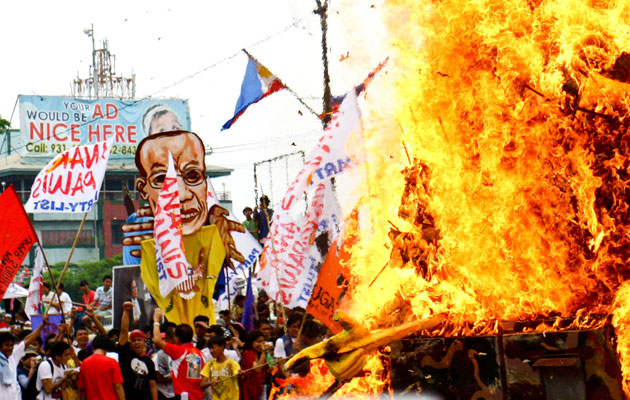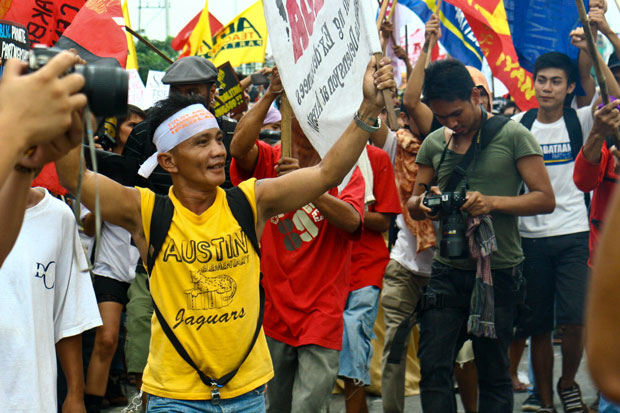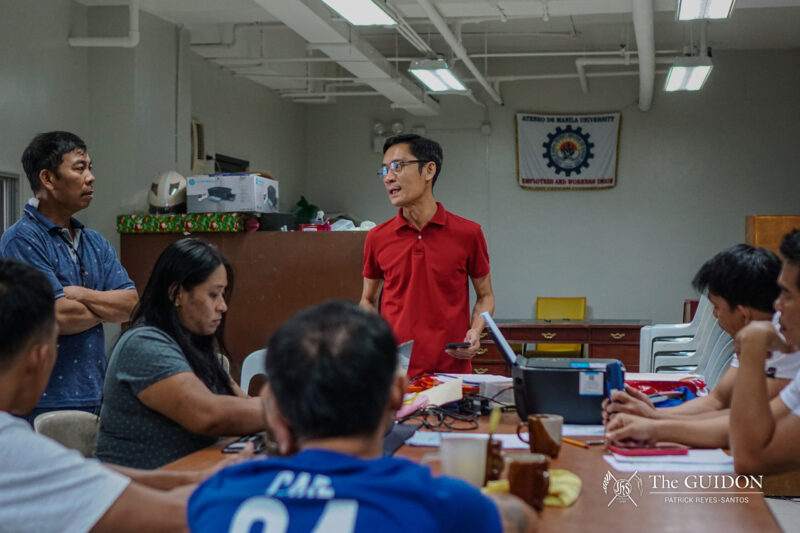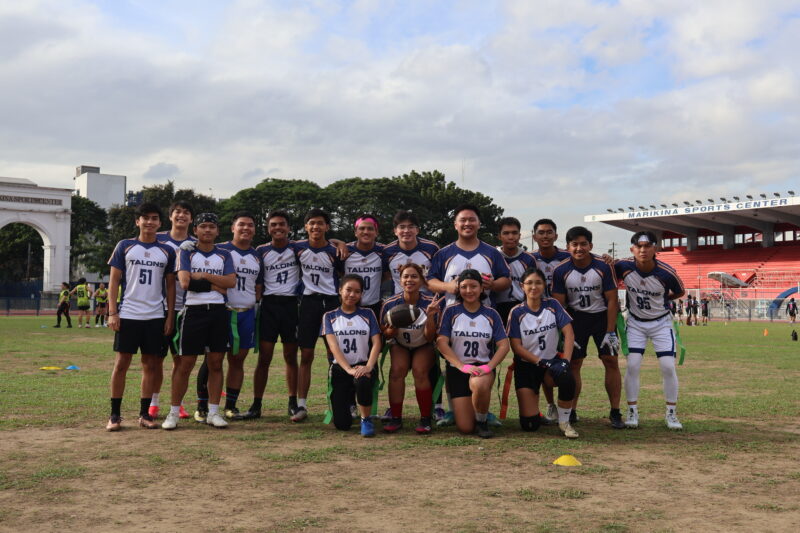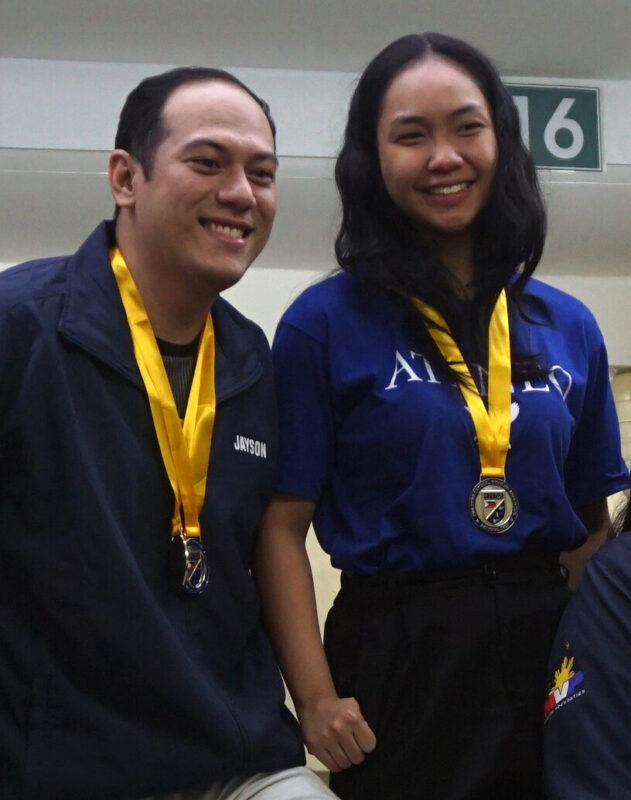Special Report | State of the Nation Address 2011
LAST JULY 25, a crowd of anti-government protesters were gathered along Commonwealth Avenue, with their grievances on the government’s failures firing them up for the mobilization. An hour or so before President Noynoy Aquino delivered his second State of the Nation Address (SONA), the progressive groups present set a penoy-shaped effigy of the president’s head on fire. The papier-mâché statue was consumed in minutes as a tower of flame rose up, illuminating the eyes of the onlookers.
The ascending blaze coincided with the rallyist’s cries, as a militant rock band strummed guitars and beat drums in time with pumping fists. Above the platform of stoic cameramen, a flock of flags were raised and shaken. The concerns of the crowd were apparent from the multitude of banners and posters: land reform, women’s welfare, worker’s rights, etc.
Amid the bustling crowd, though, Erlinda Cadapan was sitting on the ground, face downcast. Her daughter has now been missing for five years.
In the early morning of June 26, 2006, a group of gun-toting men dressed in military garb abducted Sherlyn Cadapan, Erlinda’s daughter. She says that her pleas to the administration to assist in the resurfacing of her child have only been met with silence. And she is only one of many cases.
When asked why she thinks the government might be behind the abduction, she answers in Filipino, “I don’t understand as well, even as a mother. I was never really an activist.” Her daughter was abducted while working as an activist with militant groups, and this case paints only part of the grim picture of the terrible human rights situation in the country.
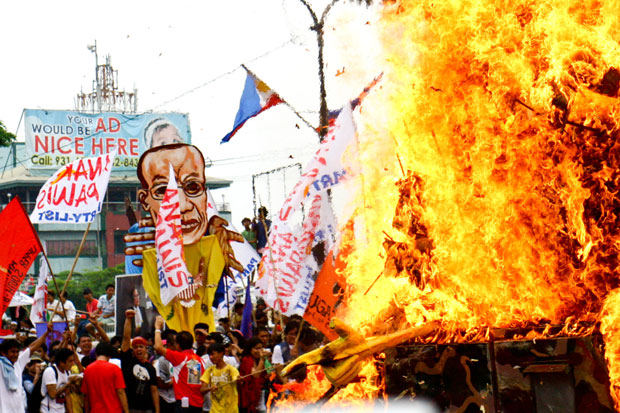
Differing sentiments. Members of the Filipino community voice out their displeasure with the Aquino adminstration. Photo by Aih Mendoza.
From Arroyo to Aquino
Many others are suffering the same fate as Cadapan, and they too can’t seem to arrive at answers. The government seems to be of no significant help.
The Arroyo administration was notorious for the incredibly high number of enforced disappearances and extrajudicial killings of activists, most of which were attributed to the military. It has been raised even in international circles, as evidenced by a United Nations special report on the very matter. Aquino has taken no definitive move to end this culture of brutality in the country’s security sector. In fact, most of the cases, if not all, still do not receive proper investigation.
The bulk of the criticism regarding these human rights violations falls largely on the military. The existence of these cases is attributed to the fact that the military does not make proper distinctions between armed insurgents and unarmed, progressive activists taking part in the legal forms of struggle.
Regarding this issue, the chairperson of the human rights advocacy group Karapatan, Marie Enriquez, makes this statement in Filipino: “[Aquino] doesn’t have a human rights agenda. That’s what’s worrying—his real agenda is to merely look good, but when it comes to human rights violations, he’s not doing anything.”
According to Enriquez, in order for progress to be made regarding these cases, investigations have to be carried out as soon as possible, with punishment following immediately after the identification of the perpetrators. She explains that what actually happens on the ground is that even when the government has already filed cases against supposed human rights violators, it doesn’t follow-up, leaving the cases ignored.
Enriquez says that Aquino has remained silent about the issue, without a clear action plan to address the concerns. She also criticizes the supposed human rights aspect of the government’s new military counterinsurgency program. She does not like that Aquino chooses to place such these human rights programs under the jurisdiction of military personnel—the very people who are accused of the abductions and killings. “That’s worrying because that’s a deception of the people,” she says. “You’re putting a function of bureaucracy under a military strategy.”
One of the most notorious human rights violators is retired army Major Jovito Palparan, who is alleged to have spearheaded the most gruesome and most expansive of these illegal operations. He had already been put on trial due to the evidence presented by Karapatan.
Even so, the courts have still not meted out any punishment on the retired army official. There is still no indication whether Palparan, who is referred to with the moniker “the butcher” in some circles, will be brought to justice under Aquino. It is at best a doubtful case, much like Erlinda’s hopes that she will ever see her daughter again.

